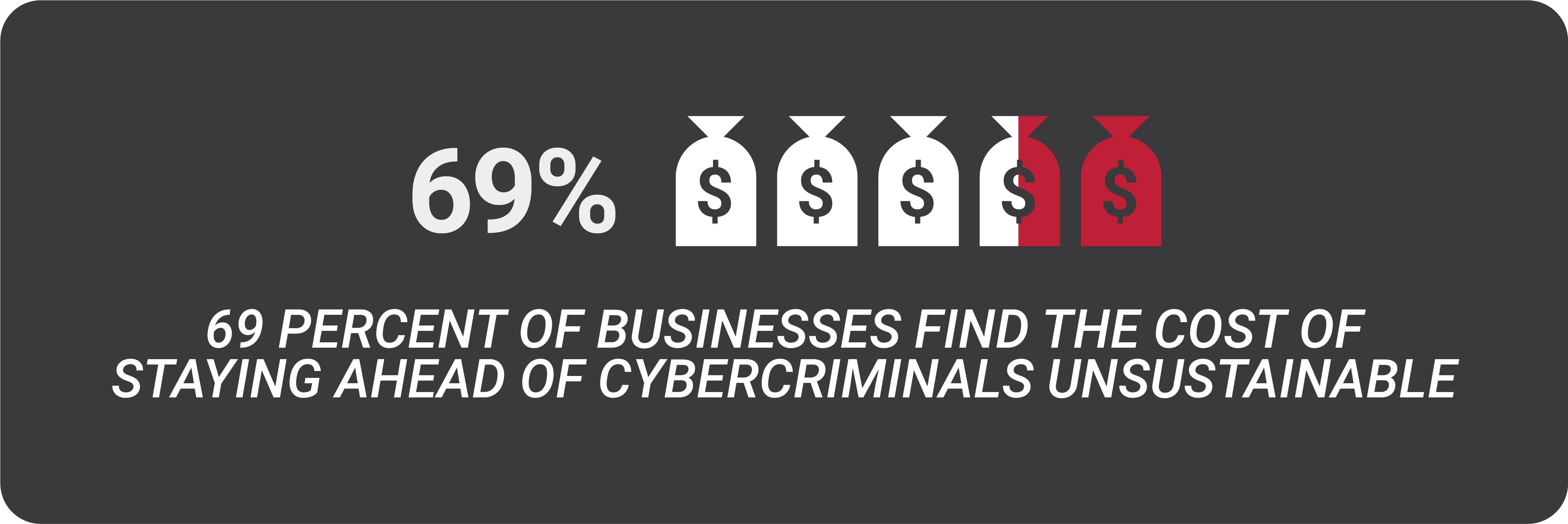Cyberthreats are a troubling daily reality, affecting everyone from small business owners to industry leaders. To make matters worse, people take more significant risks in cyberspace than they do in the physical world. Plus, the risks are harder to understand and they affect our risk vs. reward decision-making abilities. In the physical world, it’s easy to avoid situations that might cause us harm, mainly because our bodies and minds have systems in place to identify potential threats, thus, helping us avoid danger. Unfortunately, we aren’t as well equipped to navigate cyberspace.
Not long ago, most cyber threats covered by the news were mainly data-leak-related. Now, high-dollar cybersecurity attacks are the new norm, affecting everything from government agencies to meat plants to pipelines, putting a massive target on the back of big businesses. These sophisticated attacks cleverly shut down systems or hold information hostage until a hefty ransom is paid, also known as ransomware attacks. However, ransomware is only one method thieves use when targeting businesses, and those that aren’t taking this threat seriously end up paying criminals huge sums of money.

Encryption: Is It All Your Business Needs?
Although encryption is a powerful tool, it’s only one security feature, and to work effectively, businesses need additional security measures. The benefit of encryption is confidentiality and integrity, offering protection from people attempting to alter or steal data in transit. Businesses with the best security systems incorporate multiple layers of protection through the implementation of two-factor authentication, multi-factor authentication, and encrypted or secure devices, to name a few. Consulting an expert about all the available resources is the best way to protect your information.
Hacking Has Become A Massive Business
Cybercrime is a global business, often run by multinational outfits, making hacking a very profitable criminal and extremely unethical endeavor. Many of the large-scale data breaches in the news demonstrate how cybercriminals steal personal information for financial gain. The average price for ransoms keeps increasing, creating a nightmare version of supply and demand.
Our friends at Computer Weekly reported that the average ransom paid by victim organizations in Europe, the US, and Canada has almost tripled from $115,123 in 2019 to $312,493 in 2020. Whereas IBM’s Annual Data Breach Report from 2020 found that the average cost of a data breach is $3.86 million, and had risen 10% over the last five years. Data breaches aren’t the only aspect of cybersecurity threats, and as unsettling as these statistics are, there are ways to keep information private.
This isn’t the only massive cost associated with these attacks. One thing many businesses might not be considering is the cost of downtime. Gartner estimates that downtime costs the average company $5600 per minute, with an average cost of $8,851 per minute for the healthcare industry. You read that right – per minute.

How Encryption Helps With Regulations
Protecting information is nothing new; in fact, the earliest record of cryptography was used by the Spartans, dating back to 400 BC. Even in those days, Spartans used an encryption device called a scytale, which was mainly used for military leaders to communicate. Like the Spartans, we’ve learned what can happen when sensitive information is shared with someone that will use it in a way that causes harm, and we’re constantly looking for new levels of protection.
Whenever personally identifiable information becomes jeopardized, regulations are sure to follow. The Health Insurance Portability and Accountability Act (HIPAA) was designed to protect patient’s sensitive health information, the Family Education Rights and Privacy Act (FERPA) helps protect student records, and the Fair Credit Practices Act (FCPA) helps protect consumers. Utilizing encryption is a critical factor in safeguarding information to help businesses stay compliant with regulatory requirements and standards by protecting their customers’ valuable data.
Take Control Before It’s Too Late
It’s possible for businesses to recover from a data breach, but why take the chance? Trust is one of the most valuable foundational pillars for all businesses, being the hardest to win and easiest to lose. Money isn’t the only thing businesses might lose if their customer’s information is leaked, reputations are also compromised.
Datalocker offers managed encryption solutions that can provide control and certainty for some of your most critical data.